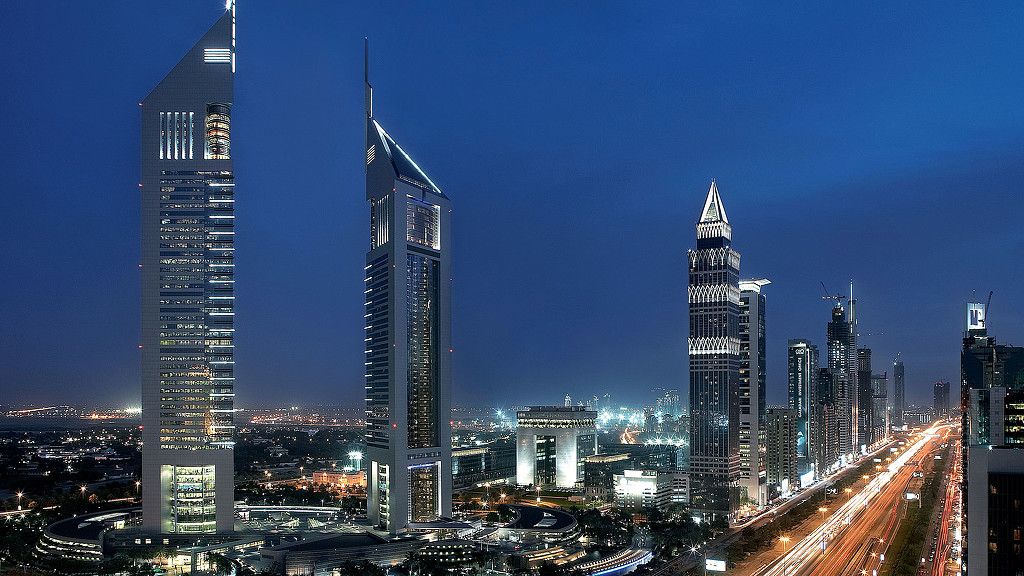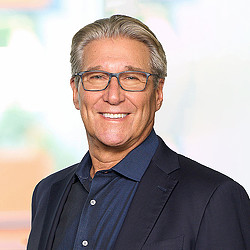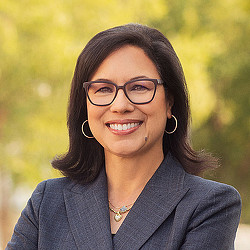COP28 Day 1 Recap: Decarbonizing the Built Environment Is a Global Priority
December 04, 2023 | By Andy Cohen and Diane Hoskins
Editor’s Note: Gensler attended COP28 in Dubai in early December 2023 to work with our partners toward sustainable solutions for the built environment. This post is the first in a series of daily recaps about our time at the event.
Taking climate action is the moral and business imperative of our time. Though we’ve said it before, the sentiment has perhaps never been more urgent than it is right now. This week, we are in Dubai for COP28, the UN Climate Conference where world leaders, companies, nonprofits, industry groups, and advocacy organizations of all kinds gather to develop strategic, creative, and global solutions to limit global temperature rise.
The building sector has an important role to play in this effort. The built environment is responsible for some 40% of all carbon emissions, and a large proportion of those emissions come from the manufacturing and transportation of building materials. Specifying low carbon materials is critical to decarbonizing the built environment. A recent report from the IFC revealed the production of construction materials (part of the built environment) is responsible for 20% of global emissions. This means half of all carbon emissions from the built environment are released even before a building is erected.
By using materials with lower carbon footprints, we can significantly decrease our impact on the warming climate. At Gensler, we are committed to eliminating all net emissions associated with our work by the year 2030 — our Gensler Cities Climate Challenge. And we recently introduced the Gensler Product Sustainability Standards, establishing sustainability performance criteria for the top 12 most commonly used, high-impact product categories we specify.
Today, we participated in a COP28 panel on “The Business Case for Sustainability in the Built Environment,” sponsored by our partners at the Global Cement and Concrete Association (GCCA). The conversation focused on how to deliver low-carbon projects across the built environment — from commercial office space to urban transport systems to critical water supply infrastructure to mass housing — and how to make the transition possible in the complex value chain of the construction sector. (Watch the video here.)
We participated in a business roundtable lunch hosted by CRH, where leaders from World Economic Forum, ARUP, and more gathered to have a candid conversation about the adoption of green materials. We also spoke with journalists from Fast Company, Economy Middle East, Gulf Today, and Landscape Middle East.
COP28 has served as an important reminder that biodiversity — that is, the biological diversity of all life on earth — is the bedrock of human health and prosperity. According to the UN, more than 50% of global GDP is dependent on nature. Upwards of 1 billion people depend on forests for their livelihoods. And the ocean and land absorb more than half of all carbon emissions. But climate change is threatening the diversity of life on earth. Warming oceans, rising temperatures, and severe weather events are wreaking havoc on every ecosystem from the wetlands to the coral reefs. It is within our reach to make meaningful change before it’s too late — but we must work together.
We believe in the power of design to create a better world and a healthier, happier, more equitable future for all. By putting our energy toward decarbonizing the built environment, we are investing in that future.
Explore all of our events and representatives attending COP28.
Follow our co-CEOs on the ground in Dubai for more updates. Follow Andy Cohen here and Diane Hoskins here.
For media inquiries, email .


